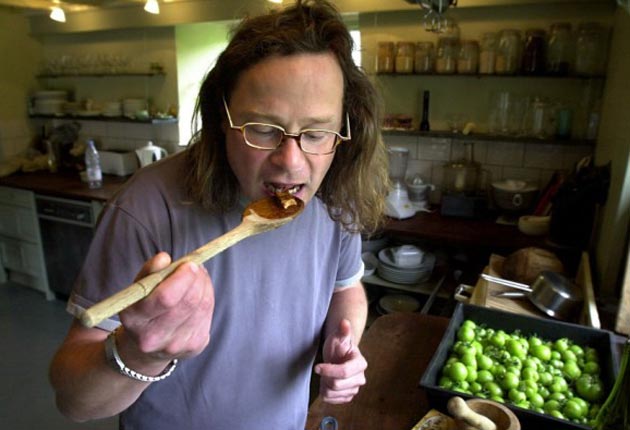Hugh's recipes turn sour as battery rabbit farms return

Battery farming of rabbits is set to return to Britain for the first time in more than a 15 years to satisfying a growing hunger for their meat.
A Lincolnshire farmer has lodged at least six planning applications for farms that are designed to cage up to 1,000 of the animals each. Celebrity chefs such as Hugh Fearnley-Whittingstall and Nigella Lawson have championed rabbit meat, and earlier this year supermarket chain Waitrose reported a 350 per cent jump in sales.
But Mr Fearnley-Whittingstall told The Independent he had concerns about the plans. "Farmed rabbit is not something that interests me, either personally or professionally," he said. "I would also worry about their welfare."
The RSPCA also said it had "serious concerns" about the conditions for rabbits in battery farms, particularly the amount of space they were given. The animals would be kept in metre-long wire cages stacked three high in barns for 12 weeks, before being sent to slaughter.
Philip Kerry of T&S Nurseries in Grantham, Lincolnshire, who lodged the applications, has also attracted opposition from locals because of traffic fears, but he insisted his plans to house the rabbits in complexes including outdoor areas would be "about as free-range as is practically possible."
Decisions on three of the planning applications, which ask for consent to build a 'barn' for rabbit farming, are imminent. They are in Fiskerton, Granby and East Bridgford in Nottinghamshire, while farms in Truro, Cornwall, and Barnack, Cambridgeshire, have been rejected and a sixth application has been lodged in Gresham in Norfolk.
Mr Kerry added: "Certainly, we consume something like 3,000 tons every year, which is not an insignificant amount, but nearly all of it comes from Eastern Europe."
Rabbit is seen as a versatile, low fat meat with a subtle, gamey flavour. In January, Waitrose predicted further rises in sales, with celebrity chefs showing Britons how it should be cooked.
But campaign group Compassion in World Farming called for the practice to be banned, and the RSPCA said in a statement: "We believe that all rabbits should be kept in well-managed higher welfare systems that allow them to behave normally and better meet their physical needs."
Join our commenting forum
Join thought-provoking conversations, follow other Independent readers and see their replies
Comments
Bookmark popover
Removed from bookmarks